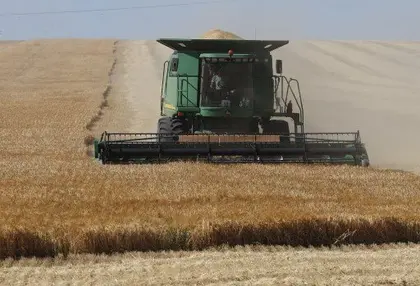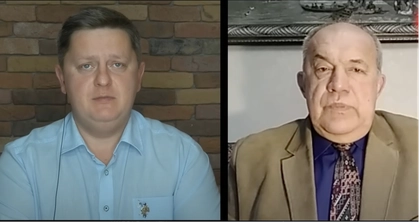Frontline developments, prospects for a Ukrainian counteroffensive, the open question of German weapons supply, and the fear of a looming global famine.
Severodonetsk Zugzwang
JOIN US ON TELEGRAM
Follow our coverage of the war on the @Kyivpost_official.
The enemy’s forces are continuing to pound Donbas. They’re breaking their backs to fulfil Putin’s order to take Severodonetsk and extend their occupation to administrative borders of the Luhansk and Donetsk Regions. The deadline was initially set for Friday, June 10.
Currently, the focus of military action is a small area in the east of the country where its fate and the architecture of a new world order are being decided. There, fierce fighting is taking a formidable toll on both sides. The difference is that the Ukrainian soldiers know what they are fighting for while the adversary’s morale is taking a nosedive.
So, what is evident now?
Russian forces have failed to meet the Kremlin’s strategic deadline. They have failed to turn tactical gains like the capture of Popasna and Lyman into major operational breakthroughs. Ukrainian forces have retained control of their supply lines to deliver ammunition, food, equipment and reserves to Lysychansk and Severodonetsk where the Russian invaders are stuck in street-to-street fighting.
While the Russian offensive is petering out, Kremlin generals are in feverish search of ways to keep it going. Like in a game of chess, the Russian military command is in a Zugzwang: any move could worsen its position.

Exiles From Occupied Bakhmut Find Hope in Christmas Celebrations
Russian troops are physically unable to attack continuously for more than four weeks. Like their Ukrainian counterparts, they need rest and replenishment, but the Russian generals cannot take a pause because “that’s an order” given by Putin.
Yet another failure will at the least cost them their ranks.
The Russian chiefs of staff are urgently trying to form an additional reserve battalion tactical group (BTG). They are also redeploying troops to the epicenter from other sectors, thus weakening them and enabling the Ukrainian forces to launch counterattacks. As the saying goes, damned if you do, damned if you don’t.
Long-awaited gifts by June
The situation in Severodonetsk is critical. There, the fate of the Donbas region hinges not only on Ukraine’s heroic soldiers and their commanders’ operational expertise, but also on long-range heavy artillery.
On June 9, Ukraine’s Defense Minister Oleksiy Reznikov granted Ukrainians a sigh of relief. The long-awaited “gifts” from the West were already in Ukraine and some of them already at the frontline. They largely comprise:
- 150 artillery systems (Krab, Caesar, М109А3, М777 and FH70);
- 240 Polish Т-72 tanks;
- 250 armored vehicles (М113 ТМ, М113 YPR-765, Bushmaster, Mastiff, Husky and Wolfhound);
- “Thousands” of anti-aircraft launchers (Stinger, Starstreak, Mistral, Piorun, Grom etc.); and
- Anti-tank launchers (NLAW, Javelin, Milan, etc.).
These are not just promises but real weapons that are already at the frontline or in the rear where Ukrainian soldiers are quickly learning to handle them.
At the same time, it became clear that German weapons would hardly help the Ukrainian army in its counterattack – not because they are not good enough but because there are not enough of them.
German Chancellor Olaf Scholz’s statements about supplies of modern anti-aircraft systems, Marder armored vehicles and Leopard tanks proved to be little more than lip service. Hopefully soon, Ukraine will receive seven (!) German self-propelled howitzers PzH2000.
Lately, the Ukrainian Armed Forces have been gathering up reserves and more frequently using Western weapons and equipment in the most important frontline areas. By all accounts, they should be ready to launch a counteroffensive next month.
How Russia caused the global food crisis and how to overcome it
Before Russia’s invasion, Ukraine was one of the world’s major food exporters. The annual amount of exported grain and legumes totaled some 60 million tons.
The main export routes ran from its Black Sea ports to the poorest African and Asian countries, some of which critically depend on Ukrainian supplies.
Since invading its neighbor, Russia has blocked and mined Ukrainian ports. As a result, an estimated 20 million tons of Ukrainian grain remain trapped. Ukraine has tried to export its crops by rail, but the throughput capacity of railroads is too small.
Some countries are already verging on famine while others see unprecedented price hikes. It is Russia’s war that has caused this global food crisis. Ukraine’s problem has become a global one and the issue of Black Sea port blockages is now the focus of the United Nations and many governments across the world.
In theory, there are two ways of unblocking the Ukrainian ports: military and non-military.
The military way involves the Ukrainian Navy de-mining the ports in cooperation with the navies of interested countries, and then to form international escorts for Ukrainian vessels carrying grain to protect them from possible Russian attacks.
But this approach risks internationalizing the war and involving other countries, to which the majority of governments object.
The non-military way is through diplomacy: a negotiated agreement through which Russia take parts in de-mining the Black Sea and guaranteeing safe passage.
Turkey would like to lead the negotiation process, claiming its role of a regional superpower and being on equally good terms with Russia and Ukraine.
Turkish President Recep Erdogan has pronounced a “successful” outcome from recent talks between Turkey and Russia, but both appear to have forgotten one basic principle: nothing about Ukraine without Ukraine.
Kyiv was left out in the cold about the course, details and results of the Turkish-Russian negotiations. Kyiv still has no guarantees that after the ports are de-mined that Russia would not use the opportunity to take them or seize the ships carrying Ukrainian grain.
Nevertheless, it is more likely than not that the Ukrainian ports will be unblocked. That could be achieved through Russo-Ukrainian talks mediated by Turkey, France and Italy, whose governments have stated their readiness to escort Ukrainian grain convoys and guarantee safety.
Ihor Zhdanov is a co-founder of the Open Policy Foundation, a National Government Organization (NGO) in Ukraine.
The views expressed in this article are the author’s and not necessarily those of the Kyiv Post.
You can also highlight the text and press Ctrl + Enter






